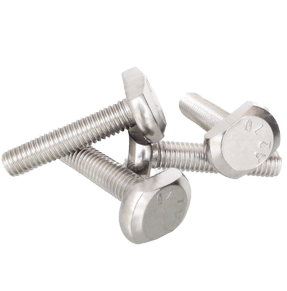

M12 Flat Washer Specifications and Uses in Various Applications
Dec . 16, 2024 02:28 Back to list
M12 Flat Washer Specifications and Uses in Various Applications
Understanding M12 Plain Washers A Comprehensive Overview
In the realm of mechanical engineering and construction, the importance of fasteners cannot be overstated. Among various types of fasteners, washers play a crucial role in enhancing the performance and longevity of assembled components. One commonly used type is the M12 plain washer, which is essential in a wide array of applications. This article delves into the features, materials, advantages, and applications of M12 plain washers, providing a comprehensive understanding of this vital component.
What is a Plain Washer?
A plain washer is a flat disc-shaped component with a hole in the center, designed to distribute loads and reduce friction between a screw or bolt and the surface it secures. The M12 designation refers to a nominal diameter of 12 millimeters, indicating that the washer is intended for use with fasteners that have an M12 thread size. Plain washers are characterized by their simplicity, typically featuring no additional features or coatings that enhance their function, making them both versatile and cost-effective.
Materials Used
M12 plain washers can be made from various materials, depending on the specific application requirements. Common materials include
1. Steel Often used for general-purpose applications, steel washers provide excellent strength and durability. They can also be plated for additional corrosion resistance.
2. Stainless Steel For applications that require high corrosion resistance, stainless steel washers are an ideal choice. They are particularly useful in environments exposed to moisture, chemicals, or saline conditions.
3. Plastic or Nylon In situations where electrical insulation is necessary, plastic or nylon washers are used. These materials are non-conductive and can effectively isolate electrical components.
4. Copper While less common, copper washers are used in specific applications for their excellent thermal and electrical conductivity.
Advantages of M12 Plain Washers
The use of M12 plain washers provides several significant advantages
plain washer m12

- Load Distribution By spreading the load from the bolt or screw over a larger surface area, plain washers help prevent damage to the materials being fastened
.- Friction Reduction Plain washers reduce friction between moving parts, aiding in the smooth operation of assemblies and increasing the overall lifespan of the components involved.
- Vibration Dampening In dynamic applications where there is a potential for vibration, plain washers can help minimize the risk of loosening, maintaining the integrity of the assembly over time.
- Surface Protection They serve to protect soft materials from the wear and tear that can occur when a fastener is tightened directly against them.
Applications
M12 plain washers are utilized across various industries, including
- Construction Used in structural assemblies, machinery installations, and building frameworks to ensure stability and safety.
- Automotive Essential in securing parts and components within vehicles, where safety and durability are critical.
- Manufacturing Employed in machinery assembly, where precise fastening and load distribution are required.
- Electrical Engineering Used in electrical equipment and installations, particularly where insulation is needed.
Conclusion
In conclusion, M12 plain washers are indispensable elements in modern engineering and construction. Their ability to distribute loads, reduce friction, and protect surfaces makes them a common choice across numerous applications. By understanding the materials available and the advantages they offer, engineers and builders can make informed decisions that enhance the performance and safety of their projects. Whether in a simple home repair or a complex industrial assembly, the plain washer remains a fundamental component worth recognizing.
Latest news
-
High-Strength Hot Dip Galvanized Bolts - LongZe | Corrosion Resistance, Custom Sizes
NewsAug.01,2025
-
Best Self Tapping Screws for Drywall - Fast & Secure Installation
NewsJul.31,2025
-
High-Strength Hot Dip Galvanized Bolts-Hebei Longze|Corrosion Resistance&Customization
NewsJul.31,2025
-
Hot Dip Galvanized Bolts-Hebei Longze Metal Products|Corrosion Resistance&High Strength
NewsJul.31,2025
-
Hot Dip Galvanized Bolts-About LongZe|High Strength, Corrosion Resistance
NewsJul.30,2025
-
High-Strength Hot Dip Galvanized Bolts - Hebei Longze | Corrosion Resistance, Customization
NewsJul.30,2025

